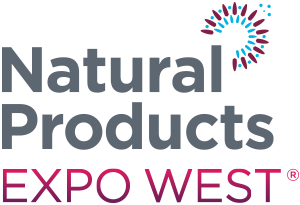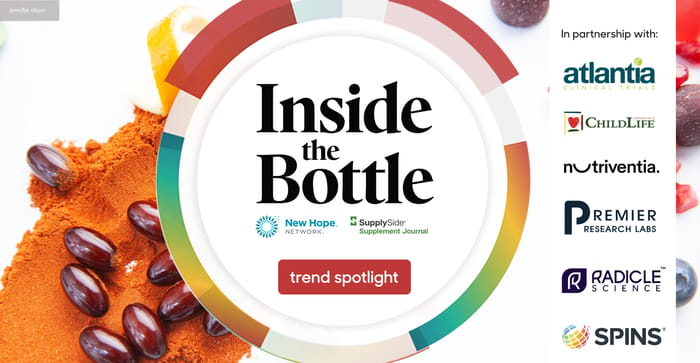
In 2015, General Mills, one of the world's largest food companies, pledged to reduce greenhouse gas emissions throughout its supply chain 28 percent by 2025. That's an ambitious goal that requires the corporation to reach far outside of its own walls; more than two-thirds of GHG emissions occur outside of General Mills' operations.
But it's a goal that Carla Vernon, the new president of its natural and organic operating unit, gets really fired up about. Vernon, who did environmental stewardship work before joining General Mills, took over the role when longtime Annie's President John Foraker stepped down last spring. She oversees the company's portfolio of natural and organic brands, including Annie's, Cascadian Farm, Muir Glen, Epic and Immaculate Baking.
She talked with us about how the brands she oversees are taking on one of the most pressing environmental issues of our time.
How is General Mills doing in its goal to reduce GHG emissions 28 percent by 2025?
Carla Vernon: We have a specific and focused set of actions across our businesses to help us deliver this goal. And we’re making steady progress. Our latest records from 2016 show that our GHG emissions fell 2 percent compared to the previous year, which we see as real progress toward our goal. And yet, we still want to push for more improvement.
At our own manufacturing locations such as our yogurt and dairy businesses, we are implementing dairy digester systems to help reduce the acid whey waste generated from production. Investments in sustainability enhancing technology are a key element of our journey. Our long-term goal is to achieve sustainable emissions levels by 2050.
When we calculated these goals, we also determined that we need to make changes in places beyond our own buildings and manufacturing locations. We need to engage our many business partners. For example, we are partnering with growers to advance strategies within agricultural and food production systems. Agriculture is a significant contributor of GHG emissions, and as a food company, we have a crucial role to play in building a new and more sustainable approach to agriculture.
And that is why we’re obsessed with dirt—yes, dirt—as a possible solution. As a young girl, I used to play for hours and hours in the dirt, making mud pies and other imaginary baked goods. So, I’ve come full circle to running a real-life food business that also loves soil. Healthier soil has more diverse micro-ecosystems that play an important role in carbon sequestration. And so, we are focused on the many ways we can advance soil health through research, education initiatives and pilot programs on real farms. We’re still early in our journey here, but we’re beyond excited about advancing healthy soil practices within the supply chain.
Who are the different stakeholder groups that you need to engage on that journey?
CV: Collaboration is crucial if we want to transform our food system and reverse the effects of climate change. It requires new levels of cooperation with farmers, packaging producers, product transport providers, grocery retailers and shoppers. We’re only able to drive progress together, and we’re fortunate to work with phenomenal partners such as the Midwest Row Crop Collaborative, Field to Market: The Alliance for Sustainable Agriculture, The Nature Conservancy, Xerces Society, National Sustainable Agriculture Coalition, Midwest Organic and Sustainable Education Service, and the Sustainability Food Trade Association. These are just a few examples.
Combating climate change also requires teamwork across broader industries and society. Through the Business for Innovative Climate & Energy Policy coalition, we work with many businesses, inside and beyond the food industry, and policymakers to advocate for climate and clean energy policies.
Why are natural and organic brands especially poised to lead the movement toward more climate-friendly practices?
CV: Shoppers come to natural and organic brands for multiple reasons. But, two reasons seem to tower above the rest: They are seeking a more healthful way of eating, and they want to support brands that are doing acts of good in the world. So, mission and purpose have always been woven into the the DNA of our natural and organic brands.
Because our brands are in the business of food, they are also deeply connected to how we treat the planet and our natural resources through farming and ranching. So, as the third-largest portfolio of natural and organic branded foods, we can do big things. And we are on a mission to use the power of the scale and resources of those brands and our parent company, General Mills. By acting as a collective, we will make a greater impact than any one of our brands would accomplish alone.
Many people are surprised to learn that General Mills is also such a leader in the organic food movement. Through brands like Annie’s and Cascadian Farm, we are partnering with leaders like The Nature Conservancy and the Xerces Society to build ecosystem diversity and soil health, and to protect pollinator habitat. Our next advancement is in the area of introducing new, restorative, eco-friendly ingredients like Kernza wheat (a perennial grain) into our farming practices and our product recipes.
Any examples you can share of an important decision General Mills has made with climate in mind?
CV: We have a bold, almost unreasonable vision for how natural and organic products can help General Mills have a big and positive impact. We believe our opportunity across the natural and organic portfolio is to help set General Mills on a course to become the company most trusted to care for the planet and its people. So, every day that our teams show up to work, they are making decisions with our planet in mind.
To encourage personal engagement by employees, we have made it possible for General Mills employees to participate in recycling programs at work. And recently, we introduced composting into the majority of employee locations. For our manufacturing and product strategy, we want our ingredients and materials sourcing to be both socially and environmentally sustainable. So, we made a commitment to sustainably source 100 percent of our 10 priority ingredients by 2020. And we have global initiatives in place to drive this commitment on ingredients and materials including cocoa, vanilla, oats, U.S. wheat, U.S. sugar beets, U.S. corn, U.S. dairy, fiber packaging, sugarcane and palm oil.
Another example is our commitment to the birds and the bees. Without them, we wouldn’t exist, but their habitats are under threat. General Mills and the USDA's Natural Resources Conservation Service are donating $4 million over five years to protect and establish pollinator habitat, providing technical assistance to farmers to plant native wildflower field edges and flowering hedgerows, for example.
A third example is our work advancing soil health and regenerative agriculture. General Mills has contributed over $3 million to the partners advancing the U.S. Soil Health Roadmap (the Soil Health Institute, the Soil Health Partnership, the National Wheat Foundation and the Nature Conservancy). Together with our partners, we are helping achieve unprecedented economic benefits for farmers and businesses, as well as helping to conserve food and land conservation for generations to come.
To put our soil health learnings to the test, General Mills is currently working on various regenerative agriculture pilot programs with our farming partners and brands such as Epic and Annie’s.
 Catch Carla Vernon at Natural Products Expo West.
Catch Carla Vernon at Natural Products Expo West.
What: Climate Day
When: 8 a.m. to 8 p.m., Wednesday, March 7, 2018
Where: Marriott, Marquis Ballroom Central
About the Author
You May Also Like






